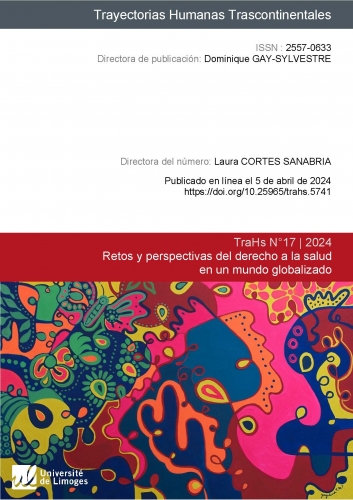La salud es un derecho humano universal y por definición, una extensión evidente de la Declaración Universal de Derechos Humanos. De acuerdo con la Organización Mundial de la Salud, este derecho se refiere al “grado máximo de salud que se pueda lograr”. Sin embargo, para alcanzar esta máxima, se requiere la interrelación con otros derechos humanos. tales como los derechos a la alimentación, la vivienda, el trabajo, la educación, la no discriminación, el acceso a la información y la participación.
El derecho a la salud está respaldado por acuerdos y tratados internacionales, como el Pacto Internacional de Derechos Económicos, Sociales y Culturales de las Naciones Unidas. El derecho a la salud implica garantizar el acceso equitativo a servicios de salud de calidad, sin discriminación y con participación y consentimiento informado de las personas.
En una perspectiva internacional, las políticas públicas de salud deben estar alineadas con el derecho a la salud. Esto implica que los gobiernos deben diseñar políticas que promuevan la equidad en el acceso a los servicios de salud y aborden las desigualdades en salud. Además, los gobiernos deben garantizar que las políticas de salud respeten y protejan los derechos humanos, incluido el derecho a la salud.
El acceso universal a la salud es un objetivo importante para muchas naciones en todo el mundo. Significa garantizar que todas las personas tengan acceso a servicios de salud de calidad, sin importar su origen, capacidad de pago o cualquier otra diferencia. Las políticas de acceso universal a la salud se enfocan en asegurar que todos los individuos puedan acceder a atención médica, medicamentos esenciales y servicios de prevención.
Sin embargo, en la actualidad existen varios retos para lograr un acceso equitativo y universal al derecho a la salud, especialmente dentro del contexto de los Objetivos de Desarrollo Sostenible 2030 como son la desigualdad e inequidad en salud, barreras económicas por la falta de esquemas de financiamiento eficientes, elevado costo de los servicios de salud especialmente para poblaciones en situaciones de pobreza, falta de acceso geográfica, diferencias culturales y lingüísticas, falta de educación en salud, sistemas de salud fragmentados, y otros.
Para superar estos retos se requiere el compromiso y colaboración de gobiernos, organismos internacionales, comunidad científica, sociedad civil y otros actores relevantes. Por lo que, este XVII número de la revista TraHs tiene como objeto identificar barreras y desafíos que afectan el acceso equitativo a la salud en un contexto global, así como destacar las oportunidades y enfoques que pueden ayudar a superar los desafíos identificados. Esto implica evaluar las mejores prácticas y enfoques innovadores que están siendo implementados en diferentes partes del mundo, así como identificar áreas donde se requiere un mayor enfoque y acción.
